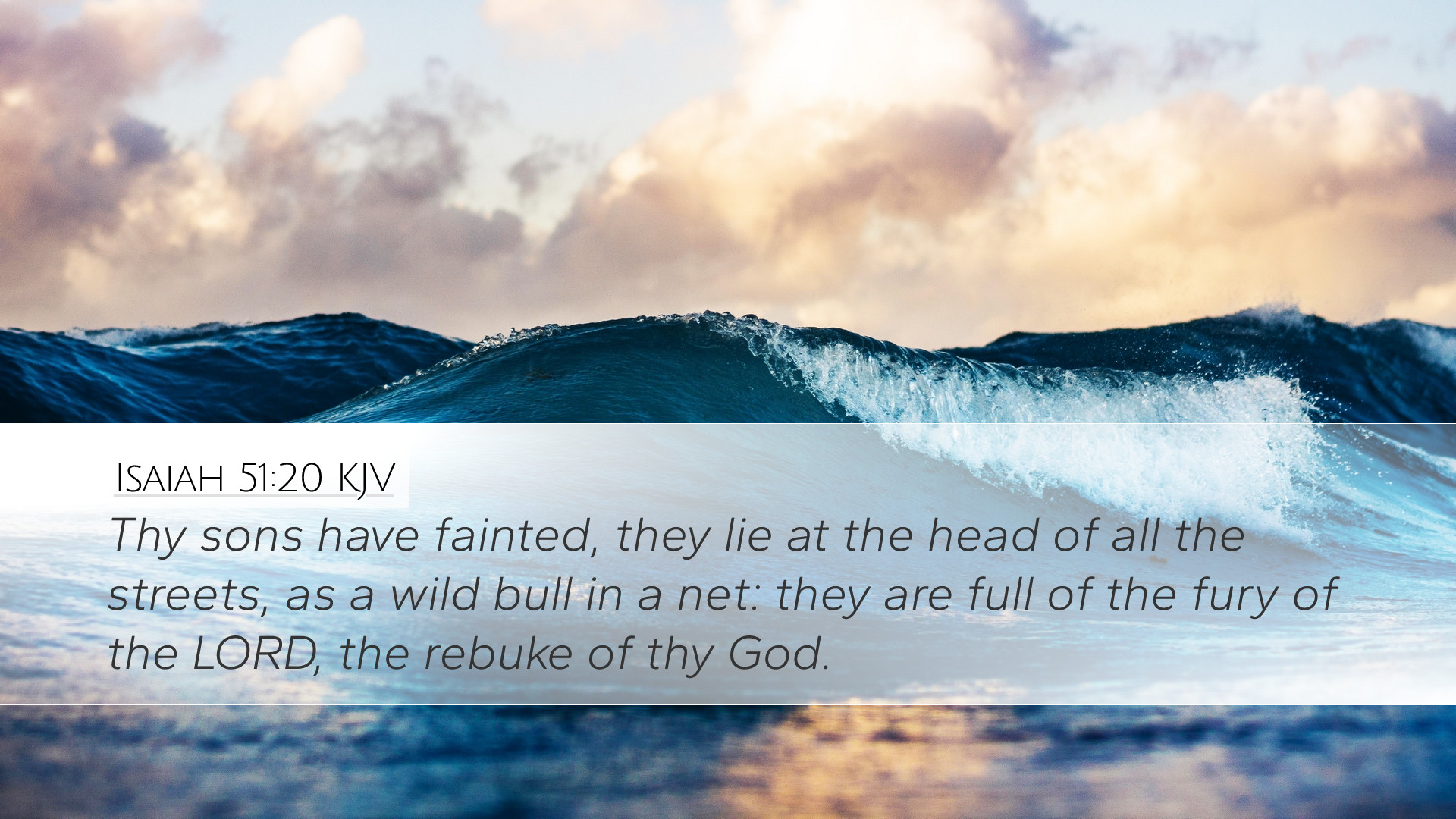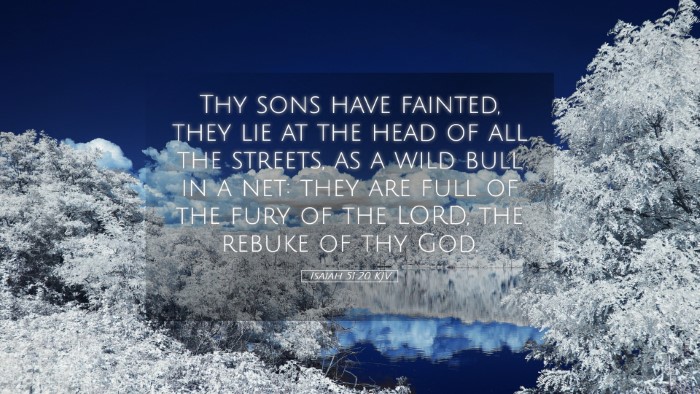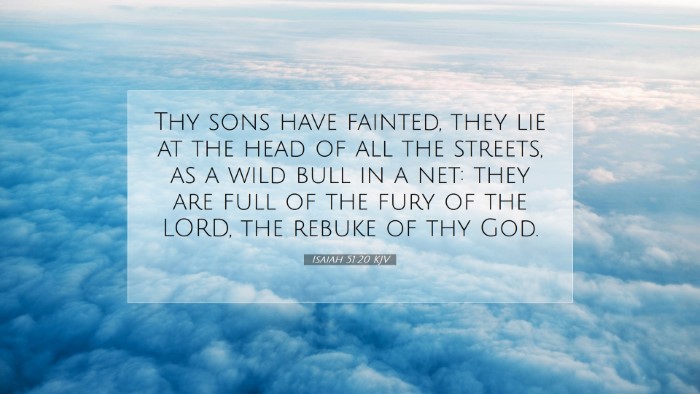Commentary on Isaiah 51:20
Isaiah 51:20 states, "Your sons have fainted; they lie at the head of all the streets, as a wild bull in a net: they are full of the fury of the LORD, the rebuke of your God." This verse presents a vivid image of desolation and despair among the children of Zion. Below is a synthesis of insights drawn from various public domain commentaries, aiming to offer a holistic understanding of the text.
Contextual Analysis
Isaiah's prophecies frequently pivot around themes of judgment and restoration. Chapter 51 encapsulates a message of comfort for God's people, encouraging them to look back at their origins and trust in God's ability to restore them. This particular verse speaks to the dire condition of those who are spiritually and physically oppressed.
Matthew Henry's Perspective
Matthew Henry highlights that in this verse, the plight of the people is depicted as akin to that of a wild bull caught in a net. The imagery underscores the inability of the people to free themselves from their situation. They are described as 'fainted,' which indicates not only a physical weakness but also a spiritual weariness. Henry observes that the judgment is rooted in their rebellion against God, who is now pouring out His fury upon them as a form of rebuke for their transgressions.
Albert Barnes' Commentary
Albert Barnes emphasizes the metaphorical language employed by Isaiah. The 'sons' refer to the descendants of the Israelites, who have succumbed to the pressures of their surrounding circumstances. Barnes notes that the 'wild bull in a net' symbolizes the overwhelming challenges they face. The 'fury of the Lord' is not arbitrary; rather, it is a righteous response to their sins, reflecting God's holiness and justice. Barnes insists that while God's anger is severe, it stems from His deep care for His people, aiming ultimately for their redemption.
Adam Clarke's Insights
Adam Clarke provides a theological exploration of the implications of this verse. He points out that the imagery of children languishing at the streets' head signifies a loss of identity and purpose. This public shame indicates how far the people have strayed from their vocation as God's chosen ones. Clarke argues that such rebuke should lead us to introspection, compelling us to consider our own lives. He suggests that the underlying message calls for repentance and a return to faithfulness to God. Clarke also conveys a sense of hope interwoven in the despair, reinforcing the notion that God’s rebuke is never without the potential for restoration.
Thematic Breakdown
- The Condition of God’s People: The exile led to psychological and spiritual afflictions, showcasing the deep grief of a people disconnected from their God.
- Imagery of the Wild Bull: This conveys chaos and entrapment, pointing to a deeper understanding of sin's ensnaring power.
- Divine Judgment: God's fury represents both punishment for sin and an invitation for repentance.
- Hope and Restoration: Despite the bleak circumstances described, underlying hope exists for those who turn back to God.
Lessons for Today
This verse speaks profoundly to contemporary readers, especially pastors, students, and theologians. It serves as a reminder of the serious nature of sin and its consequences. It also compels us to understand that while God’s discipline may be painful, it is always rooted in His desire for our restoration.
Moreover, the image of the sons fainting can provoke believers to reflect on their spiritual state. Are we caught in the nets of worldly distractions and sin? Just as the original audience of Isaiah needed to heed the call to seek God, so must we. This passage invites us not only to acknowledge our frailties but also to completely depend on God’s strength and grace for deliverance.
Conclusion
Isaiah 51:20 encapsulates a complex blend of warning, indictment, and promise. The insights from various commentators help unravel the layers of meaning in this text, enriching our understanding of God’s relationship with His people. As we explore the depths of suffering and the weight of divine rebuke, we are simultaneously encompassed by the hope of restoration that awaits those who return to God.


